
© Dave Morgan. (Click image for larger version)
Bolshoi Ballet
Swan Lake
London, Royal Opera House
29 July 2013
Gallery of Pictures by Dave Morgan
www.bolshoi.ru/en
Details of the Bolshoi London season
Yuri Grigorovich, choreographer and former director of the Bolshoi Ballet (1964-1995), and Lilian Hochhauser, impresario, are almost the same age – well into their eighties and still going strong. This summer, Lilian and Victor (now 90) Hochhauser are celebrating the fiftieth anniversary of their first presentation of the Bolshoi Ballet in the Royal Opera House. They, the Bolshoi and Grigorovich have weathered many a drama over the past half a century. We, their audience, admire and applaud their fortitude, even as we deplore the crime committed against Sergei Filin, the Bolshoi Ballet’s blinded artistic director, still undergoing treatment. He is duly credited in the programme as director of the company, with former ballerina Galina Stepanenko as interim artistic director.

© Dave Morgan. (Click image for larger version)
To open the latest season with Grigorovich’s production of Swan Lake seems a throwback to a previous era, when he determined what and how the Bolshoi danced. Grigorovich first mounted his idea of Swan Lake in 1969, not long after he took over the Bolshoi Ballet. The powerful Soviet Minister of Culture, Ekaterina Fursteva, didn’t like it and made him produce a second version with a happy ending. Once Furtseva had gone, he reverted to his original concept of Swan Lake as essentially Siegfried’s dilemma. The production he brought to London for the Bolshoi’s 1989 season was similar to the present one, mounted in 2001 and last seen at the ROH in 2004. He has tinkered with it over the years, noting in the programme that what once seemed unusual has since been ‘emulated in many other productions of Swan Lake the world over’.
He’s right. The tale of an enchanted princess in thrall to an evil sorcerer has often become a psychological study of a young man torn between duty and desire, idealised love and sexual lust. Odette and Odile are his fantasies, von Rothbart his dark inner self. The ballerina’s dual role has been usurped by the divided persona of the male hero. The corps of swan-maidens longing for Odette’s rescuer to release them from the sorcerer’s spell has been reduced to a delusion. Sometimes Siegfried commits suicide, sometimes he comes to his senses – or in the latest Grigorovich version, is left wondering what to do with himself.

© Dave Morgan. (Click image for larger version)
Grigorivich has streamlined the the four-act ballet into two halves, each with scenes alternating reality and fantasy in swift transition. Spare designs by Simon Virsaladze (who died in 1989) look as though they date back to the 1960s. An inner curtain shaped as an escutcheon bearing Prince Siegfried’s coat of arms with a white and a black swan drops down to indicate a change of scene. Behind the drop cloth, emerging like a mirage, is either a lake or a gothic castle interior. Virsaladze’s palette is subdued: black and dull gold costumes for the court, pure white tutus for the swans. Siegfried, all in white, is always picked out in a bright spotlight, as is Odette, while the rest of the stage is mostly dimly lit.
There is no mime, no back story for any of the characters. The opening celebrations are a sombre affair, so dull they need a jester (Denis Medvedev) to animate them. Bland Siegfried (Alexander Volchkov) is cheerful enough to dance a pas de trois with two lively ladies (Anastasia Stashkevich is particularly engaging) and compete with the jester in who can bring off the most pirouettes. But the prince has longings, expressed in yearning arabesques and renversés in a solo in front of the drop cloth. He is shadowed by his Evil Genius (Vladislav Lantratov), who conjures up a vision of swan-maidens protecting their queen.
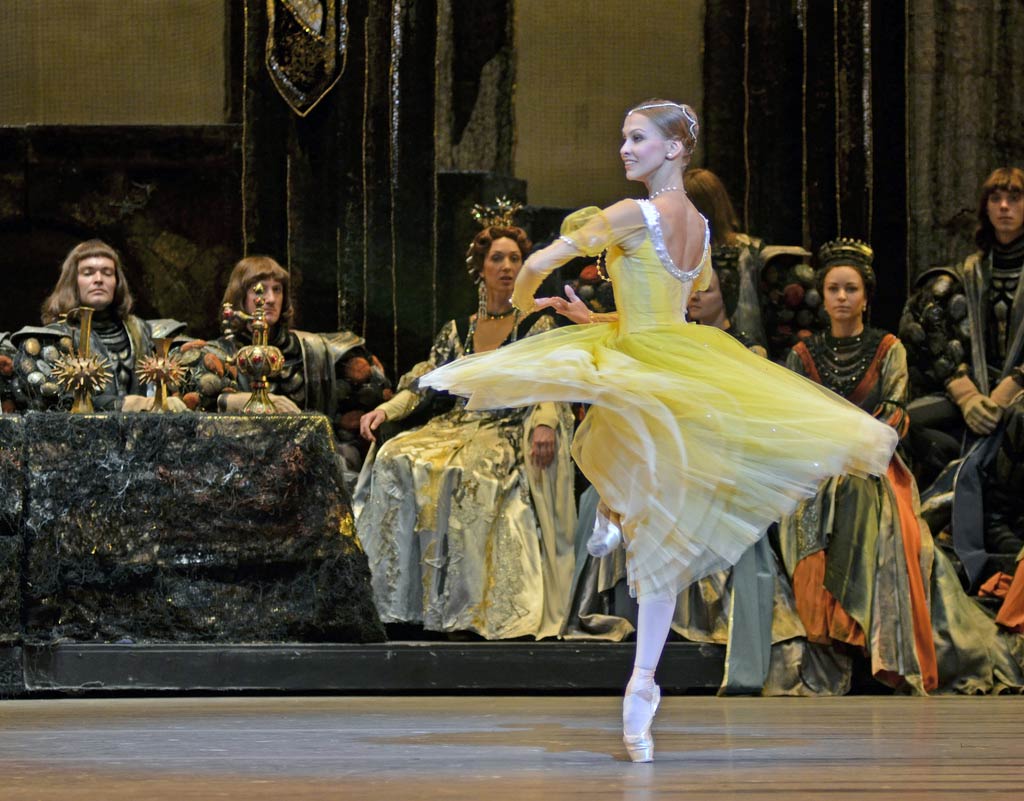
© Dave Morgan. (Click image for larger version)
With an abrupt cut to Tchaikovsky’s music, Odette appears in a swift transition to Ivanov’s choreography for Act II. Svetlana Zakharova’s long slender arms and high raised leg in attitude make her resemble a swan sailing across water. Almost unreal, she is exquisite, refined, her technique immaculate. But her phrasing of the familiar choreography is so ritualised that it is unrevealing. There’s no telling whether her Odette is fearful, vulnerable or pleading for rescue; her response to the plangent solo violin isn’t cantabile, in contrast to her attempts to fly from Siegfried or the Evil Genius. The corps, her image multiplied 31 times, moves like clockwork, without the expansive breath the Maryinsky used to – I hope still do – infuse the swans’ ensembles. The Bolshoi’s orchestra, conducted by Pavel Klinichev, play Tchaikovsky with the soul the dancing lacks.

© Dave Morgan. (Click image for larger version)
The score has been ruthlessly reordered. When Odile appears in the ballroom scene, for example, she and her six black swan clones dance to Tchaikovsky’s Valse Bluette, orchestrated by Drigo, usually placed in the mournful last act. To the same music, the Evil Genius proves that he, too, can do multiple pirouettes as well as dashing split jetés. Lantratov dominates every scene in which he appears, even though he’s almost invisible in black. He makes the most of the virtuoso role, formerly danced by Nikolai Tsiskaridze and by Pavel Dmitrichenko, accused of masterminding the attck on Filin. (The role’s title has been a gift to the press.)
The ballroom scene whizzes by, thanks to sparkling performances by the five princesses vying for the prince’s hand, as well as by Zakharova as Odile. The soloist princesses lead national dances all on pointe instead of in heeled shoes or boots. The Spanish would-be bride, Anna Tikhomirova, seems to be channelling Kitri. The Neapolitan one, Daria Kohkhlova, has lovely feet and the Russian princess, Maria Vinogradova, is so luscious that Siegfried would surely be tempted – if only he were there. But he’s never around when guests or courtiers are supposed to be dancing for his delectation. Grigorovich’s production is not concerned with dramatic plausibility or characterisation, which may account for Zakharova’s Odette remaining a remote vision and her Odile a cool doppelganger rather than a temptress.
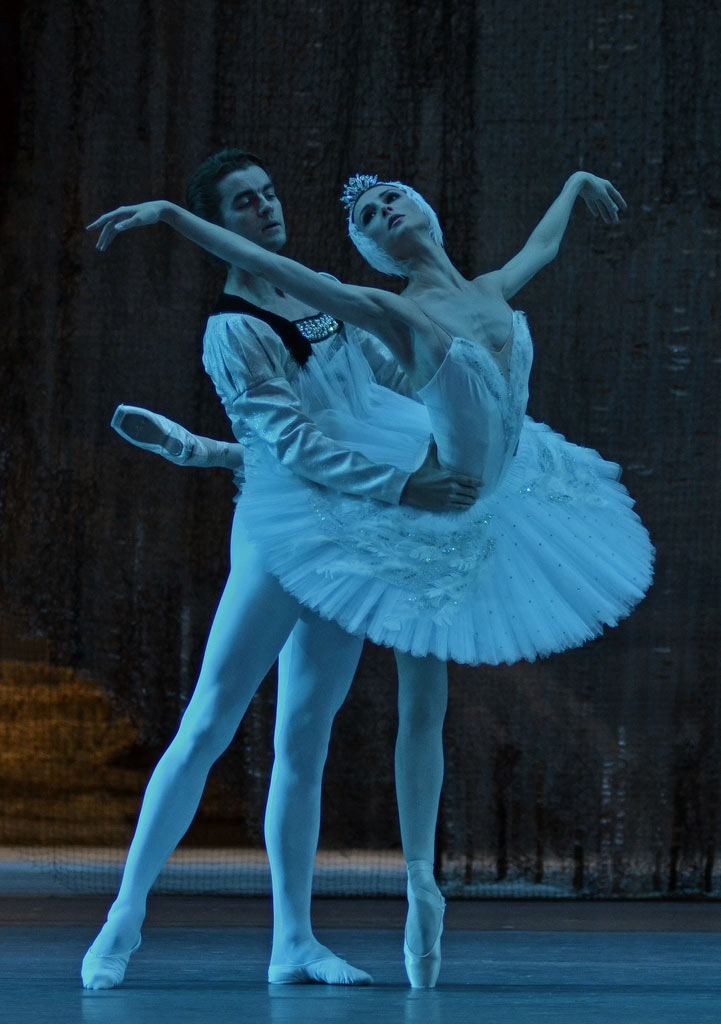
© Dave Morgan. (Click image for larger version)
On the opening night, Volchov wasn’t present for Zakharova’s super-fast fouettés in the Black Swan pas de deux. Perhaps he was lamenting in the wings for the shambles he made of the prince’s variation. Perhaps he was injured. When he came back to swear Siegfried’s mistaken passion for Odile, it was impossible to care about his plight, or indeed, about Odette’s. Since she is the prince’s fantasy, there’s no call for her to commune with her fellow swan-maidens in the final scene about the betrayal of their hopes. The lakeside choreography can’t convey anything, despite the passion in the music. The inconclusive ending is bewildering. Odette is no more and the Evil Genius, Siegfried’s dark side, has triumphed. The prince gazes out at the audience, like Albrecht at the end of Giselle, bereft. But this Swan Lake hasn’t been a love story, so what is Siegfried inconsolable about?
There are two more Grigorovich productions to come in this season, La Bayadère and The Sleeping Beauty, before just a few performances of Balanchine’s Jewels and Ratmansky’s 2008 version of The Flames of Paris. Shall we gain any sense of where the Bolshoi Ballet is headed in the future? Or is it marking time artistically, relying on the revisions of an old Soviet era producer to maintain its once glorious reputation, while trying to overcome its appalling infighting?

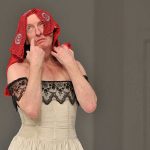
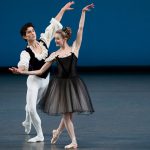
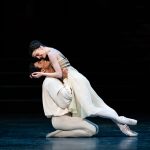
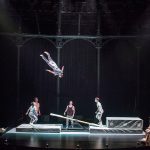

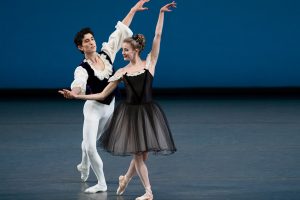
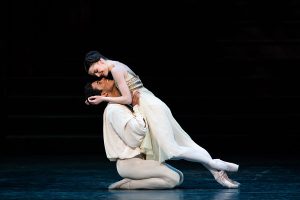
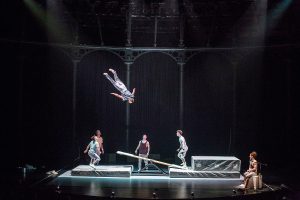
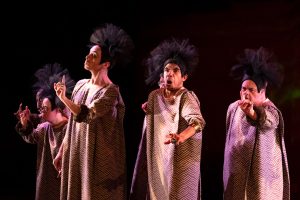
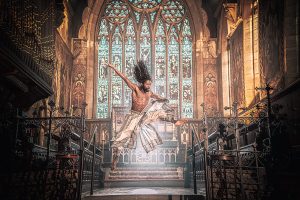

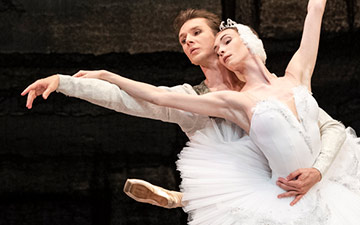
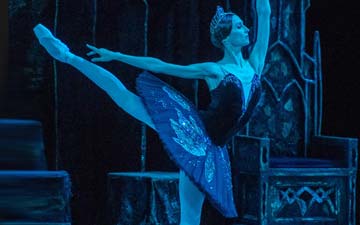
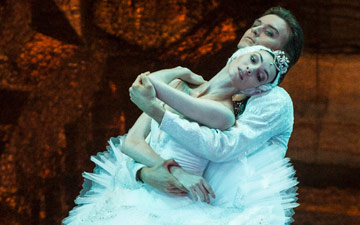
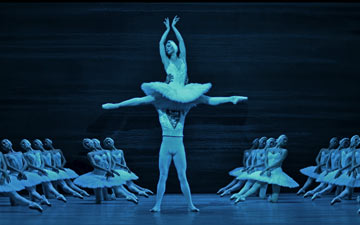
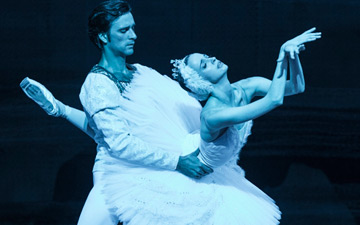
Thank you for this excellent review – the Bolshoi has recently been in Australia and with The Bright Stream the company appeared to relish their characterisation and the Ratmansky choreography. From Jann’s review of Swan Lake it appears they are constricted and back in the cage of the past within this production. What a great shame for the company that Ratmansky is no longer there and that Filin has not recovered from tragedy of January.